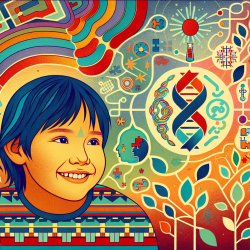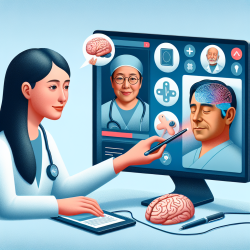Introduction
The mental health of adolescents, particularly those living in challenging environments such as slums, is a pressing concern. The ARTEMIS trial, a cluster randomized controlled trial, aims to address this by implementing interventions to manage depression and suicide risks among adolescents in Indian slums. This blog will explore how practitioners can leverage the findings of the ARTEMIS trial to enhance their practice and improve outcomes for young individuals.
Understanding the ARTEMIS Trial
The ARTEMIS trial is a comprehensive study that focuses on adolescents living in slum communities in India, a group that is particularly vulnerable to mental health issues due to socioeconomic stressors. The trial employs a community-based intervention strategy, aiming to reduce depression and suicide risks through a dual approach: a stigma reduction campaign and a technology-enabled screening and management platform.
Key Findings and Implications for Practice
The ARTEMIS trial's process evaluation provides crucial insights into the effectiveness of the intervention and its implementation. Here are some key findings and their implications for practitioners:
- Implementation Fidelity: The trial highlights the importance of maintaining fidelity in intervention delivery. Practitioners should ensure that interventions are delivered as planned to achieve desired outcomes.
- Contextual Factors: Understanding the local context is crucial for the success of any intervention. Practitioners should consider socioeconomic and cultural factors that may influence the effectiveness of mental health interventions.
- Stigma Reduction: The stigma reduction campaign was found to be effective in improving attitudes towards mental health. Practitioners should incorporate stigma reduction strategies in their practice to encourage help-seeking behaviors among adolescents.
- Technology-Enabled Solutions: The use of technology in screening and managing mental health issues proved beneficial. Practitioners should consider integrating digital tools to enhance the accessibility and efficiency of mental health services.
Encouraging Further Research
While the ARTEMIS trial provides valuable insights, it also highlights the need for further research in the following areas:
- Long-Term Outcomes: Further studies are needed to assess the long-term impact of the interventions on adolescent mental health.
- Adaptation to Other Contexts: Research should explore how the ARTEMIS model can be adapted and applied in different cultural and socioeconomic contexts.
- Integration with Educational Systems: Investigating how these interventions can be integrated into school-based programs could enhance their reach and effectiveness.
Conclusion
The ARTEMIS trial underscores the importance of data-driven, context-sensitive approaches in addressing adolescent mental health issues. Practitioners are encouraged to utilize these insights to refine their interventions and advocate for further research to expand the evidence base. By doing so, we can work towards creating better mental health outcomes for adolescents, particularly those in underserved communities.
To read the original research paper, please follow this link: Protocol for process evaluation of ARTEMIS cluster randomised controlled trial: an intervention for management of depression and suicide among adolescents living in slums in India.










